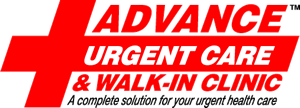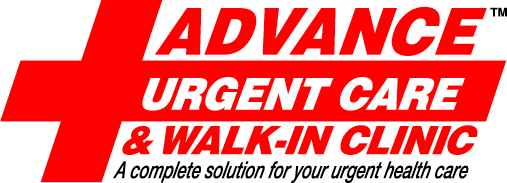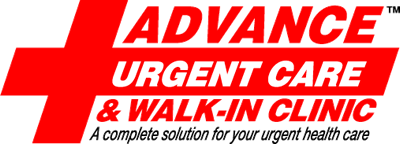 Alternative Treatments to Zantac for Heartburn Relief
Alternative Treatments to Zantac for Heartburn Relief
Unveiling the Risks: Why Seek Zantac Alternatives?
In recent times, the discovery of potential carcinogens in some batches of Zantac, a widely used script for acid reflux, pressed patients and healthcare providers to scout for safer alternatives. The concern isn't merely about avoiding a single OTC medication, but about embracing a holistic approach to health that minimizes reliance on potent drugs, which often carry the risk of side effects or long-term health implications. Recognizing the need for change, many are now turning their gaze towards remedies that are not only effective but also gentler on the body. This shift is not without reason—Pharm Land is abuzz with discussions about the urgency to find non-toxic, alternative comp treatments that ensure heartburn relief without the baggage of harmful consequences. As the search for Zantac substitutes becomes more pressing, the exploration delves not just into the realm of pharmacy shelves but also into the vast expanse of natural and dietary solutions poised to revolutionize how we perceive and manage heartburn.
| Alternative Approach | Benefits | Considerations |
|---|---|---|
| Herbal Remedies | Natural, fewer side effects | Effectiveness may vary, consult healthcare provider |
| Dietary Changes | Long-term relief, promotes overall health | Requires discipline and lifestyle adjustment |
| Physical Posture | Immediate relief, no medication required | May not be feasible for everyone |
| Stress Management | Addresses root cause, comprehensive benefits | Effectiveness can be subjective |
Nature's Bounty: Exploring Herbal Remedies for Heartburn

Amidst growing concerns over zantac and its potential risks, many are turning to nature's pharmacy for relief. Herbal elixirs, known for their gentle yet effective properties, stand out as a compelling alternative. These compunds offer a blend of tradition and healing, avoiding the harsh chemicals found in conventional medications. From the soothing embrace of chamomile tea to the esophagus-coating wonders of slippery elm, nature provides a plethora of options. Embracing such remedies not only aligns with a more holistic approach to health but also sidesteps the complications associated with some OTC and prescription solutions. As we increasingly look for ways to harmonize our health regimens with natural practices, these herbal heroes recieve well-deserved recognition for their role in managing heartburn and promoting overall digestive wellness.
Adjusting the Plate: Dietary Changes for Acid Relief
For those looking to sidestep the reliance on Zantac and similar prescriptions, a focus on dietary adjustments offers a compelling pathway to relief. By understanding how certain foods can act as triggers, individuals are empowered to craft a plate that avoids these aggravators, leaning instead towards ingredients known to soothe rather than stir the stomach. This isn't just about cutting out the obvious offenders like spicy dishes and acidic fruits but involves a holistic reevaluation of eating habits. Incorporating OTC remedies to complement these changes can also enhance efficacy. It's a strategy that begins in the kitchen, requiring no script yet offering significant respite. However, it's neccessary to note this approach demands consistency and patience, as results are cumulative rather than stat.
The Power of Posture: How Positions Affect Heartburn

Understanding the subtle influence of how we hold ourselves can unveil a surprising dimension to handling heartburn effectively. For instance, maintaining an upright position after meals can significantly deter the ascent of stomach acids, offering a respite from discomfort. Elevating the head while sleeping is another game-changer, preventing nocturnal episodes without reaching for the Zantac or its OTC counterparts. Such adjustments, seemingly inconsequential, pack a profound impact, underlining that sometimes, the simplest measures - like tweaking our posture - can offer the relief we've been seeking, sidestepping the need for a comp, or managing symptoms without a script. This approach not only aligns with a more natural management strategy but also empowers us to take control of our well-being, gently steering us away from reliance on medications and their accomodate side effects.
Over-the-counter Solutions: Safe and Effective Alternatives
In the quest to mitigate heartburn sans Zantac, the pharmacy aisle presents a treasure trove of efficacious remedies that might have escaped your notice. Among these, OTC (Over-The-Counter) options shine as beacons of relief for those wary of prescription paths or the 'Candyman's' under-the-counter offerings. Whether it's antacids that neutralize stomach acid stat, H2 blockers that reduce acid production, or proton pump inhibitors (PPIs) offering longer-lasting reprieve, the variety ensures there's something for virtually every need. Diving into this compendium, it becomes clear that managing heartburn doesn't always necessitate a script; sometimes, relief lies just a pharm tech's consultation away. Making informed choices in this landscape can definately reduce dependency on heavier pharmaceutical artillery, fostering a more sustainable approach to wellness.
| Medication Type | Common Brand Names | Function |
|---|---|---|
| Antacids | Alka-Seltzer, Tums, Rolaids | Neutralizes stomach acid |
| H2 Blockers | Pepcid AC, Zantac 360° (famotidine) | Reduces acid production |
| Proton Pump Inhibitors (PPIs) | Prilosec OTC, Nexium | Longer-lasting reduction of acid production |
The Role of Stress Management in Alleviating Heartburn
Stress has often been overlooked as a trivial factor, yet its impact on digestive health is profound. Mastering stress management techniques can serve as an elixir to soothe the burn of heartburn, not just momentarily but in the long haul. By integrating practices such as mindfulness, yoga, or even deep-breathing exercises into daily routines, individuals may witness a significant downturn in their acid reflux episodes. This approach, devoid of OTC medications or prescriptions, promotes a natural rebalance of the body's internal enviroment, proving that sometimes, the best medicine doesn’t come from a vial but from being in tune with one’s body and mind.



